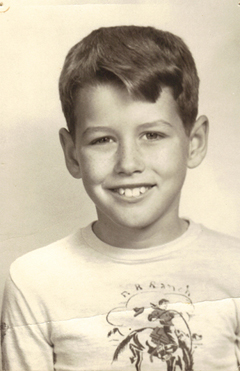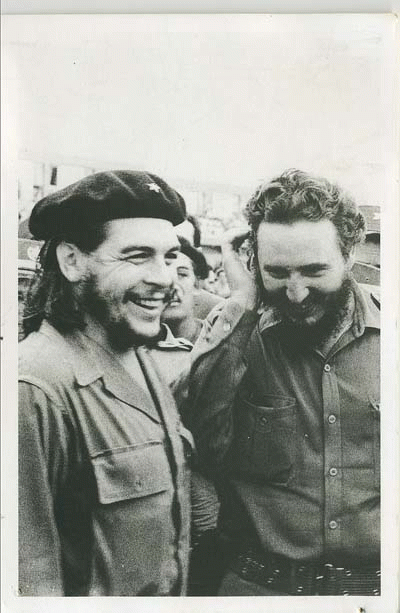The following story is
directly accessible. Click here.
*
Cuba was the first to come into Haiti with medical aid when the January 12, 2010, earthquake struck. Among the many donor nations, Cuba and its medical teams have played a major role in treating Haiti's earthquake victims. Public health experts say the Cubans were the first to set up medical facilities among the debris and to revamp hospitals immediately after the earthquake struck. Their pivotal work in the health sector has, however, received scant media coverage. "It is striking that there has been virtually no mention in the media of the fact that Cuba had several hundred health personnel on the ground before any other country," said David Sanders, professor of public health from Western Cape University in South Africa.
The Cuban team coordinator in Haiti, Dr. Carlos Alberto Garcia, said the Cuban doctors, nurses, and other health personnel worked nonstop, day and night, with operating rooms open eighteen hours a day. During a visit to La Paz Hospital in the Haitian capital Port-au-Prince, Dr. Mirta Roses, director of the Pan American Health Organization, which is in charge of medical coordination between the Cuban doctors, the International Committee of the Red Cross (ICRC), and a host of health sector nongovernmental organizations (NGOs), described the aid provided by Cuban doctors as "excellent and marvelous."
Haiti and Cuba signed a medical cooperation agreement in 1998. Before the earthquake struck, 344 Cuban health professionals were already present in Haiti, providing primary care and obstetrical services as well as operating to restore the sight of Haitians blinded by eye diseases. More doctors were flown in shortly after the earthquake as part of the rapid response. "In the case of Cuban doctors, they are rapid responders to disasters, because disaster management is an integral part of their training," explains Maria Hamlin ZÃ �niga, a public health specialist from Nicaragua. Cuban doctors have been organizing medical facilities in three revamped hospitals, five field hospitals, and five diagnostic centers, with a total of twenty-two different care posts aided by financial support from Venezuela. They are also operating nine rehabilitation centers staffed by nearly seventy Cuban physical therapists and rehabilitation specialists, in addition to Haitian medical personnel. The Cuban team has been assisted by one hundred specialists from Venezuela, Chile, Spain, Mexico, Colombia, and Canada, as well as seventeen nuns.
However, in reporting on the international aid effort, Western media have generally not ranked Cuba high on the list of donor nations. One major international news agency's list of donor nations credited Cuba with sending over thirty doctors to Haiti, whereas the real figure stands at more than 350, including 280 young Haitian doctors who graduated from Cuba. A combined total of 930 Cuban health professionals make Cuba's the largest medical contingent on the ground in Haiti. Another batch of 200 Cuban-trained doctors from twenty-four countries in Africa and Latin American, and a dozen American doctors who graduated from medical schools in Havana, went to Haiti to provide reinforcement to existing Cuban medical teams. By comparison, the internationally renowned Mà �decins Sans Frontià �res (MSF or Doctors without Borders) has approximately 269 health professionals working in Haiti. MSF is much better funded and has far more extensive medical supplies than the Cuban team.
But while representatives from MSF and the ICRC are frequently in front of television cameras discussing health priorities and medical needs, the Cuban medical teams are missing in the media coverage. Richard Gott, the Guardian's former foreign editor and a Latin America specialist, explains, "Western media are programmed to be indifferent to aid that comes from unexpected places. In the Haitian case, the media have ignored not just the Cuban contribution, but also the efforts made by other Latin American countries." Brazil is providing $70 million in funding for ten urgent care units, fifty mobile units for emergency care, a laboratory, and a hospital, among other health services. Venezuela has canceled all of Haiti's debt and has promised to supply oil, free of charge, until the country has recovered from the disaster. Western NGOs employ media officers to ensure that the world knows what they are doing. According to Gott, the Western media has grown accustomed to dealing with such NGOs, enabling a relationship of mutual assistance to develop. Cuban medical teams, however, are outside this predominantly Western humanitarian-media loop and are therefore only likely to receive attention from Latin American media and Spanish language broadcasters and print media.
There have, however, been notable exceptions to this reporting syndrome. On January 19, a CNN reporter broke the silence on the Cuban role in Haiti with a report on Cuban doctors at La Paz Hospital. Cuban doctors received global praise for their humanitarian aid in Indonesia. When the US requested that their military planes be allowed to fly through Cuban airspace for the purpose of evacuating Haitians to hospitals in Florida, Cuba immediately agreed despite almost fifty years of animosity between the two countries.
Although Cuba is a poor, developing country, their wealth of human resources--doctors, engineers, and disaster management experts--has enabled this small Caribbean nation to play a global role in health care and humanitarian aid alongside the far-richer nations of the west. Cuban medical teams played a key role in the wake of the Indian Ocean tsunami and stayed the longest among international medical teams treating the victims of the 2006 Indonesian earthquake. They also provided the largest contingent of doctors after the 2005 earthquake in Pakistan. In the Pakistan relief operation, the US and Europe also dispatched medical teams. Each had a base camp with most doctors deployed for a month. The Cubans, however, deployed seven major base camps, operated thirty-two field hospitals, and stayed for six months.
A Montreal summit of twenty donor nations agreed to hold a major conference on Haiti's future at the United Nations in March 2010. Some analysts see Haiti's rehabilitation as a potential opportunity for the US and Cuba to bypass their ideological differences and combine their resources--the US has the logistics while Cuba has the human resources--to help Haiti. "Potential US-Cuban cooperation could go a long way toward meeting Haiti's needs," says Dr. Julie Feinsilver, author of Healing the Masses, a book about Cuban health diplomacy, who argues that maximum cooperation is urgently needed. Feinsilver is convinced that "Cuba should be given a seat at the table with all other nations and multilateral organizations and agencies in any and all meetings to discuss, plan and coordinate aid efforts for Haiti's reconstruction." In late January 2010, Secretary of State Hillary Clinton thanked Cuba for its efforts in Haiti and welcomed further assistance and cooperation. In Haiti's grand reconstruction plan, Feinsilver argues, "There can be no imposition of systems from any country, agency or institution. The Haitian people themselves, through what remains of their government and NGOs, must provide the policy direction, and Cuba has been and should continue to be a key player in the health sector in Haiti."
*
Sources:
Ernesto Wong Maestre, "Haità y el Paradigma Cubano de Solidaridad" (Haiti and the Cuban Paradigm of Solidarity), Rebelià �n, January 24, 2010, http://www.rebelion.org/ noticia.php?id=99233.
Tom Fawthrop, "Cuba's Aid Ignored By The Media?" Al Jazeera English, February 16, 2010, click here
(Note: You can view every article as one long page if you sign up as an Advocate Member, or higher).





